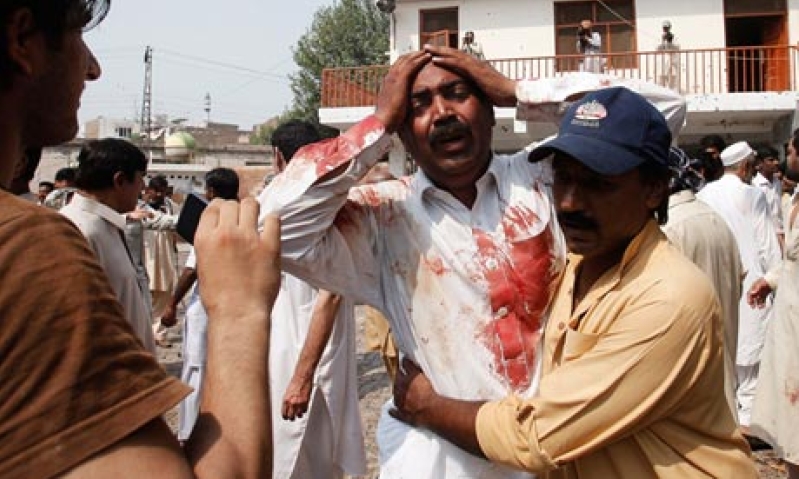
Two suicide bombers detonated their explosives at the oldest Christian church in northwestern Pakistan on Sunday killing at least 72 people and critically injuring 120 others, officials said.
Sunday's attack occurred around 11 a.m., as more than 600 worshippers were leaving the white-stone All Saints Church, which dates to the mid-1800s.
The city's police chief, Mohammed Ali Babakhel, said one terrorist attacked the entrance of the church, firing a pistol at police guards, killing one, and tossed a grenade. Prevented from entering the church by police fire, he detonated the 13 pounds of high explosives in the suicide jacket he was wearing. A second attacker was already inside and, 30 seconds later, detonated the bomb.
"I rushed to the site and saw dead bodies and wounded people, mostly women and children screaming," said Saeed Ullah, 24, according to Washington Post. "Some bodies were headless and some parts of bodies were lying on the floor."
Ahmad Marwat, who identified himself as the spokesman for the Jundullah wing of the Pakistani Taliban, claimed responsibility for the attack.
"They are the enemies of Islam, therefore we target them," Marwat told Associated Press by telephone from an undisclosed location. "We will continue our attacks on non-Muslims on Pakistani land until the drone strikes are stopped."
Christians make up about four percent of Pakistan's population of 180 million. They, along with Sufis and Shi'ites, were frequently the targets of Sunni Muslim militants, who sees them as heretical.
Violence has been on the rise in Pakistan in past months, undermining Prime Minister Nawaz Sharif's efforts to tame the insurgency after coming to power in June.
"The Prime Minister said that terrorists have no religion and targeting innocent people is against the teaching of Islam and all religions," his office said in a statement.
"He added that such cruel act of terrorism reflects the brutality and inhumane mind set of the terrorists."
According to security officials, a suspected U.S. drone fired four missiles into a house in south Waziristan, where six militants were killed, according to a Pakistani intelligence official who spoke on condition of anonymity because he was not authorized to speak publicly, the Washington Post reports.
Pakistan's government condemned the suspected U.S. drone strike, saying such strikes "set dangerous precedents in inter-state relations."
Some residents, enraged at the lack of adequate security at the church, took to the streets immediately after the attack, buring tires and shouting slogans.
Protests by Christians were also reported in other cities including the violent port city of Karachi and Multan.






